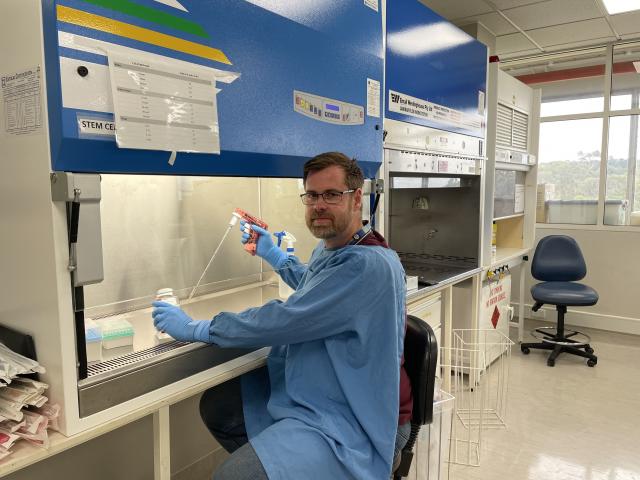Geelong researchers have played an important role in developing a new technique to address the challenges of transporting temperature-dependent vaccines, which they hoped would increase access in remote communities and developing countries.
Researchers at CSIRO’s Australian Centre for Disease Preparedness in Geelong were involved in the breakthrough, where live virus vaccines were encapsulated with a dissolvable crystalline material called metal organic frameworks (MOFs).
The MOFs were able to protect the integrity of vaccines for up to 12 weeks at temperatures as high as 37 degrees Celsius.
Without refrigeration the vaccines would have lasted only a few days.
Geelong-based CSIRO researcher and immunologist Dr Daniel Layton said the breakthrough science would now focus on proving the approach for other animal and human vaccines, including mRNA COVID-19 vaccines.
“Vaccination is undoubtedly one of the most effective medical interventions, saving millions of lives each year, however delivering vaccines, particularly to developing countries, is challenging because they often lack the cold storage supply chains required to keep the vaccine viable,” he said.
“Live virus vaccines are extremely effective, but their complex composition makes them susceptible to high temperatures, and a universal stabilisation technique has not been found.
“This breakthrough has the potential to enable more affordable and equitable access to vaccines across the world.”
The research focused on two different types of live viruses as proofs of concept, a Newcastle disease vaccine designed to protect poultry and a strain of influenza A.
When MOFs were formed around the vaccines they helped protect the vaccine molecules from heat stress.
A solution was then used that dissolved the MOF and allowed the vaccine to be administered.
CSIRO researcher and author of the research paper, Dr Ruhani Singh, said the technique was cost-effective and scalable.
“There are two common approaches to protecting vaccines from heat. You can modify the vaccine, which is complex and laborious and at high temperatures may still only last less than a week, or you can use other stabilising agents which pose challenges including how to realistically scale up the solution,” Dr Singh said.
“This world-first approach of stabilising a vaccine with MOFs is simple, rapid, and scalable because it takes one step.”
The team is continuing to progress the research and is now looking to partner with animal and human health companies to commercialise the work.









